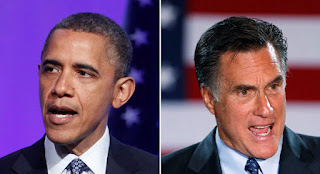A few weeks ago, Barack Obama came out in favour of gay marriage (pardon the pun), and Mitt Romney, likely to be his challenger in the 2012 Presidential election, opposed him.
In the UK, the issue has also been presented to the public as a debate about ‘equality’ and the ‘rights’
of gay people. However, when one strips the subject down to the facts, and peels away
all the political doublespeak, it becomes clearer that the whole debate has
little to do with gay people, and everything to do with religion, particularly
in this case - Christianity.
* * *
We live in a liberal society in the UK, some would say the most liberal society in the world, and very few
people bear a grudge against homosexuals. If gay people wish to wed and form
stable unions, it does not affect the lives of heterosexual couples in any way, and generally we should be happy that more people are committed to forming a stable
relationships.
Gay people can already get married in the
UK. It is called a civil partnership, and such couples receive all of the same
rights and privileges as a married couple.
Therefore, when David Cameron stands up and
says “I am in favour of gay marriage,” what he is really saying is “I do not
believe in the Christian definition of the word marriage.” He has been widely criticised for this move, by religious leaders from Christian and several other faiths in Britain.
In the USA, such a statement would make him
unfit to call himself a conservative in the eyes of a huge proportion of
conservative-minded people. This issue highlights the ongoing campaign to
deconstruct the Christian faith within western society (a future feature on this blog) and shows that Britain is even further down this road that the
USA. Cameron is happy to spin this issue on its head to make it appear to be
about being nice to the gay community, when in reality it is about sticking it
to the Christian community.
Whether we like it or not, whether we call
ourselves Christians or Atheists, religious or secular, our whole civilisation
is based upon Christianity. It is what makes who we are. It is where our morals
and values are originally derived; it is why we give presents to each other in
midwinter; and it is why we share chocolate eggs in the Spring.
Whichever side of the argument you find yourself on, it is worth stepping back from the gay marriage debate momentarily to
think a little about the importance of religion in a wider context.
Religions are the basis of civilisations
and serve to ensure their continued existence. Humans reproduce through the
union of a man and a woman, and a civilisation can only survive if its birth
rate is above two. Many religions are generally opposed to abortion,
homosexuality, divorce, adultery and in some cases even contraception, as these
things undermine the basic bedrock of civilisation – families with children. Without family units with multiple children,
societies crumble, birth rates fall, and civilisations die.
The ‘bible-thumping’ American Midwest offends
European tastes, but they certainly have themselves a healthy reproductive family-based
society. The sad truth in Europe is that fecundity rates are falling, as the decline of the family-oriented societal urge to reproduce, combined with emigration, leaves us
unable to sustain our numbers.
Now of course, there is a separate argument
to be made for each aspect of the fall in the birth rate, and if we can achieve
greater happiness for a greater number of people by legitimising abortion,
homosexuality and divorce, all of which have already been legalised, then
perhaps there is a case to keep on going with this trend. But take a moment to consider what this
trend means for people of faith, and what implications it has for the education
of our youth.
As perhaps the title of this post may suggest,
gay marriage is of course not the end of civilisation, but the redefinition of the
word marriage is a great leap along the path to the total exclusion of religious
values from public life, a dangerous and untested experiment, into which no one
really knows what will emerge to fill the void where Christianity once stood.


No comments:
Post a Comment